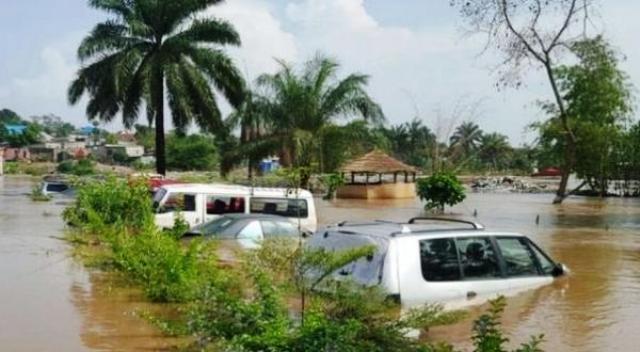Floods triggered by heavy rains and a river bursting its banks have killed at least 50 people and left thousands more homeless in southwestern Congo, a provincial governor said today.
Torrential rains caused the Kalamu river, which flows through the city of Boma into the River Congo, to overflow for two hours before the waters receded, washing some of the victims across the border into Angola.
The waters left parts of the city, Democratic Republic of Congo’s sole Atlantic port, covered in up to a metre of mud and a search was under way to dig out more bodies that may be buried.
“The rains on the night of Monday to Tuesday in Boma have caused at least 50 deaths,” Jacques Mbadu, governor of Kongo Central province told AFP.
“We buried 31 bodies on Wednesday and we expect to get about 20 more bodies back today that ended up across the border in Angola,” Mbadu added.
Mbadu said the waters hit a peak of two metres (six feet) above their usual level, destroying at least 500 homes and leaving several thousand people homeless.
Boma, which lies near the mouth of the River Congo around 470 kilometres (300 miles) southwest of the capital Kinshasa, is home to between 150,000 and 200,000 people.
“This is a cyclical phenomenon which happens every 10 years. It last happened in January 2015 but with climate change it’s now happened again in December 2016,” Mbadu said.
‘Like a tsunami’
Locals told AFP that two of the city’s three districts were still covered in mud, up to a metre deep in some places, and described tragic scenes as the waters rushed dramatically into their houses.
“I lost my two children, carried off by the waters, which rose up to three metres like a tsunami. I could only watch them as they were washed away,” Faustin Lutete, a government employee, said.
Fisherman Jean-Marie Kola said he just had time to “run far away, as our house was showing signs of fragility. It collapsed later.”
Shopkeeper Camille Inonga said he had “lost everything” in the flash floods.
“My shop is covered in mud. I can’t get in there. This is a whole life gone up in smoke,” he said.
Provincial governor Mbadu said the authorities were encouraging those left homeless by the floods to seek shelter with relatives to avoid “creating more problems”, rather than putting them in reception centres.
He said he had been working with a Dutch company to divert the “waters of the Congo river, whose enormous flow puts pressure on the Kalamu, to try to prevent these floods happening again.”
Congolese towns and cities are typically built up in a haphazard fashion and government services to deal with natural disasters are practically non-existent.
Floods in Kinshasa in December 2015 left more than 30 people dead and 20,000 families homeless, most of them in the capital’s slums, where residents were left to battle with their bare hands through noxious mud, slime and fecal matter.
Despite its vast mineral wealth, Congo is classed among the world’s poorest countries and two thirds of its 70 million inhabitants get by on less than $1.25 a day.
Source: AFP











